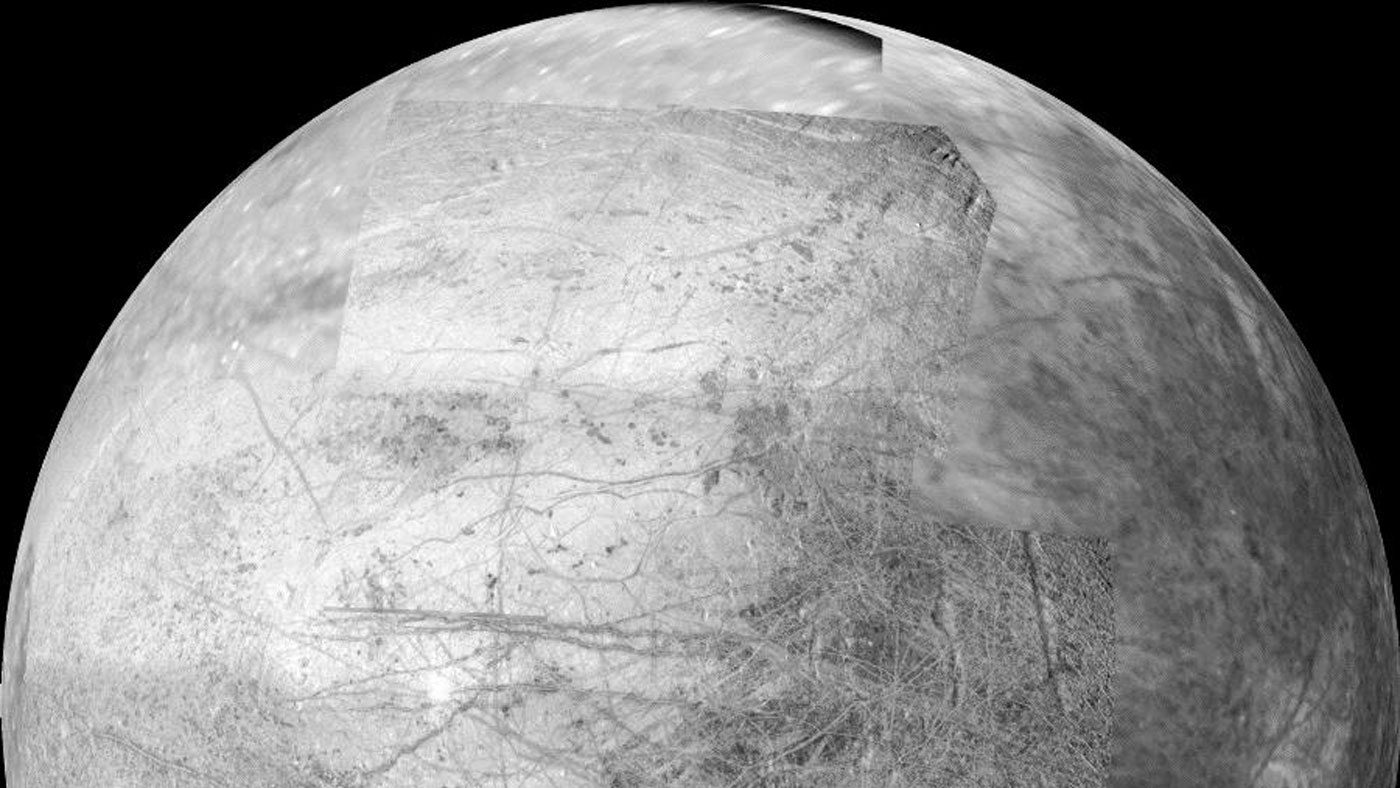Nasa spots evidence of water plumes on Jupiter's moon Europa
Jets of spouting vapour from the icy shell could be tested for signs of life beyond Earth, say scientists

Jupiter's moon Europa may be expelling water plumes from under its icy shell, according to Nasa.
Tantalising evidence of what appeared to be spouting water vapour was spotted by scientists using ultraviolet light to observe the moon in silhouette, thanks to its planet serving as a bright light from behind.
"If plumes exist, this is an exciting find," said lead researcher William Sparks.
The Week
Escape your echo chamber. Get the facts behind the news, plus analysis from multiple perspectives.

Sign up for The Week's Free Newsletters
From our morning news briefing to a weekly Good News Newsletter, get the best of The Week delivered directly to your inbox.
From our morning news briefing to a weekly Good News Newsletter, get the best of The Week delivered directly to your inbox.
The discovery would make it easier for scientists to test samples of water for signs of life without drilling through miles of ice, he added.
If the moon does turn out to have water, energy and organic chemicals, it "could have the basic building blocks that developed into life on Earth", says The Guardian.
"For a long time humanity has been wondering whether there is life beyond Earth," said Nasa astrophysicist Paul Hertz. "We're lucky enough to live in an era where we can address questions like that scientifically.
"We have a special interest in any place that might possess those characteristics. Europa might be such a place."
A free daily email with the biggest news stories of the day – and the best features from TheWeek.com
However, scientist Jennifer Wiseman has downplayed the chances we could be about to find direct evidence of life with a flyby mission.
"The jury's out," she said. "It first depends on whether the plumes are really there."
Scientists' endeavours to gather clues of an ocean beneath Europa's icy shell started some decades ago. In 1979, Voyager spacecraft showed the ice was cracked in some places while in the 1990s, the Galileo mission, which spent eight years orbiting Jupiter, confirmed there was an ocean under the moon.
-
 Which way will Trump go on Iran?
Which way will Trump go on Iran?Today’s Big Question Diplomatic talks set to be held in Turkey on Friday, but failure to reach an agreement could have ‘terrible’ global ramifications
-
 High Court action over Cape Verde tourist deaths
High Court action over Cape Verde tourist deathsThe Explainer Holidaymakers sue TUI after gastric illness outbreaks linked to six British deaths
-
 The battle over the Irish language in Northern Ireland
The battle over the Irish language in Northern IrelandUnder the Radar Popularity is soaring across Northern Ireland, but dual-language sign policies agitate division as unionists accuse nationalists of cultural erosion
-
 NASA’s lunar rocket is surrounded by safety concerns
NASA’s lunar rocket is surrounded by safety concernsThe Explainer The agency hopes to launch a new mission to the moon in the coming months
-
 Nasa’s new dark matter map
Nasa’s new dark matter mapUnder the Radar High-resolution images may help scientists understand the ‘gravitational scaffolding into which everything else falls and is built into galaxies’
-
 Moon dust has earthly elements thanks to a magnetic bridge
Moon dust has earthly elements thanks to a magnetic bridgeUnder the radar The substances could help supply a lunar base
-
 How Mars influences Earth’s climate
How Mars influences Earth’s climateThe explainer A pull in the right direction
-
 The ‘eclipse of the century’ is coming in 2027
The ‘eclipse of the century’ is coming in 2027Under the radar It will last for over 6 minutes
-
 NASA discovered ‘resilient’ microbes in its cleanrooms
NASA discovered ‘resilient’ microbes in its cleanroomsUnder the radar The bacteria could contaminate space
-
 Artemis II: back to the Moon
Artemis II: back to the MoonThe Explainer Four astronauts will soon be blasting off into deep space – the first to do so in half a century
-
 The mysterious origin of a lemon-shaped exoplanet
The mysterious origin of a lemon-shaped exoplanetUnder the radar It may be made from a former star